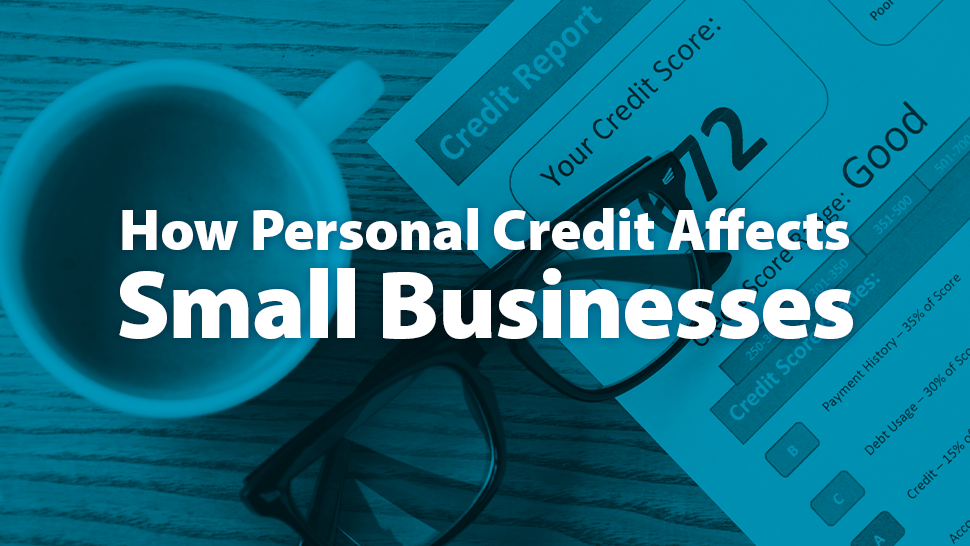The decision to start your own business is exciting, but learning about the ins and outs of running one can get complicated.
The best part? Understanding how personal credit affects your business is simple!
HOW PERSONAL CREDIT AFFECTS BUSINESS
It’s a common misconception that business owners only need to focus on building business credit without having a good personal credit history.
As we’ve discussed before, credit reports can reveal our characteristics. Our personal credit report houses information that potential lenders, employers, and business associates may find noteworthy.
Lenders use credit reports as a character reference. These reports reveal a history of tradelines or accounts associated with the person and business and produce a score. That score indicates the risk they pose.
Most financial institutions use the score as a guideline for lending money.
For example, let’s say there’s a new small business owner seeking to work with a larger company. The owner may not have a long business credit history. In this case, a good option that shows stability and trustworthiness would be a personal credit report and resume.
AVOID PREDATORY CREDIT FIXERS
You might be wondering how to improve your credit now that you’ve learned how it can affect small businesses.
Many for-profit agencies claim to help people and businesses build their credit. You must use caution and research before paying for these services.
These agencies tend to target financially distressed consumers. They do this by falsely promising they can remove negative information from credit reports or negotiate reduced payments with creditors.
The already financially-stressed consumers pay large amounts of money for services that are, ultimately, not completed.
FIXING PERSONAL CREDIT (THE RIGHT WAY)
Improving personal credit isn’t unachievable or complicated, but it takes persistence. Seek assistance from financial education professionals to learn what it means to be financially well and improve your credit.
Many credit unions and other financial institutions offer free credit counseling. You can find a credit union near you with The Opportunity Finder, which connects people to over 17,000 local community development financial institutions (CDFIs), Minority Depository Institutions (MDIs), and not-for-profit credit unions.
Pelican State Credit Union’s Financial Wellness Program allows everyday members and business owners to meet face-to-face with Nationally Certified Credit Counselors. The program equips students with the knowledge and tools to build a successful business plan and reach their financial goals.
Building Business Credit
It’s essential to build business credit once you’ve improved your personal credit.
Luckily, this isn’t difficult to achieve.
You can initiate relationships with financial institutions through account openings and personal loans. Establishing business credit would be an extension of this relationship.
In addition to financial institutions, business owners can start a credit history by maintaining business relationships with vendors and suppliers. The vendors’ and suppliers’ activity report can give a report on how that business operates and pays back its debts.
Starting a new business can be scary, but understanding how credit affects small businesses and having a strong business plan is the key to success!
If you need assistance developing a business plan or you have questions about budgeting, credit, or debit, Pelican’s team of Nationally Certified Credit Counselors is here to help! You can schedule free one-on-one financial wellness checkups and counseling by visiting pelicanstatecu.com/wellness.
Do you have any questions about how personal credit can affect small businesses? Let us know in the comments!
Once a Pelican State CU member, always a member—through life’s milestones, we’ll always be there to help you with your financial needs. Your Financial Family for Life. Give us a call at 800-351-4877.



